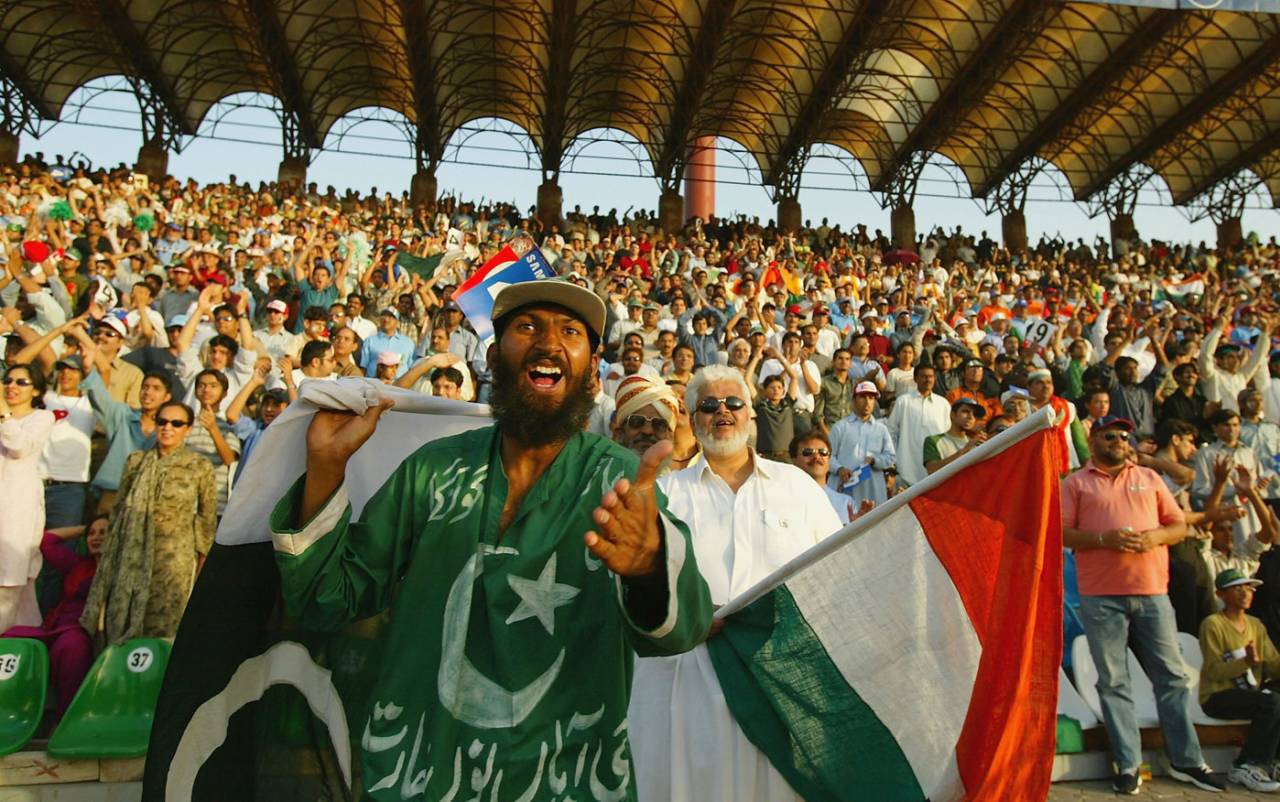March 3, 2009. Lahore. The third day of the
second Test between Pakistan and Sri Lanka. The match is not remembered for the cricket. I imagine most people would have to refer to the records, as did I, to find out that Thilan Samaraweera scored a remarkable second double-century in successive Tests, or that Umar Gul toiled for a day and a half to earn a six-wicket haul. As the Sri Lankan team made its way to the Gaddafi Stadium, 12 gunmen launched a
lethal attack on the Sri Lanka team bus. Six policemen and two bystanders were killed, as was the driver of the minivan carrying the match officials. Seven members of the Sri Lankan team, the assistant coach, and the reserve umpire were injured. It was the worst attack on an international sports team since the Munich Olympics in 1972.
The tour took place against a background of uncertainty. Sri Lanka had replaced India, who had pulled out after the Mumbai attacks in November 2008. Much has been written about the inadequate security for the travelling team and officials. Following safety concerns, the Pakistani government had guaranteed "
presidential-style security" for the tour, which patently failed to materialise. Astonishingly, the attackers simply sauntered off into the Lahore traffic. None were injured or apprehended at the scene. The lack of security was all the more puzzling, given an internal police report a month earlier had warned an attack against the Sri Lanka team was planned.
The worst affected by the tragedy, of course, are the men who died and their families. It seems incomprehensible that such appalling loss could be associated with something as benign as a cricket match. Of the cricketers affected, Samaraweera and Tharanga Paranavitana suffered the worst injuries. Thankfully, both of them recovered and resumed their international careers, as did Ahsan Raza, the reserve umpire.
In the midst of the tragedy, there was much bravery on display. Mehar Mohammad Khalil, the driver of the Sri Lanka team bus, demonstrated
immense courage by staying at the wheel and steering the bus to the safety of the stadium, with the tyres shot out from underneath him. He has been deservedly honoured by Pakistan and Sri Lanka. As always, happenstance played its part. The rocket fired at the team bus skimmed over its roof. The grenade that was rolled under the bus failed to detonate.
Kumar Sangakkara, in his outstanding
Spirit of Cricket address, relates how a bullet thudded into the seat at the exact spot where his head had been a second earlier. On such fine margins do the Fates operate.
Sangakkara's address provided a fascinating insight into the team's response. One word above all stands out. Resilience. The team was of a generation that had grown up with the ever-present danger of LTTE terrorism. They were thankful to have survived a direct assault on them, but they knew their countrymen had suffered far worse, and they were unbowed, even joking with each other just hours after the attack. It's hard to imagine more cosseted teams responding with such fortitude.
Five years later, international cricket is yet to return to Pakistan. The nation that has produced some of the most outrageously gifted cricketers we have ever seen is reduced to playing its matches overseas. It's quite possible that no place in the world could recreate the clamorous intensity of Karachi or Lahore, but the relative sterility of the UAE is a cruel contrast.
Sri Lankan officials have made encouraging noises, but, as yet, it is not deemed safe for international tours to resume. Sri Lanka has made a point of supporting cricket in countries threatened by political instability, as evidenced by the recent tour of Bangladesh. It is an acknowledgement that their neighbours supported them during Sri Lanka's own security problems. Citing an LTTE bomb that killed almost a hundred people a month before the 1996 World Cup, Australia and West Indies refused to play their group matches in Colombo. Curiously, the Australians didn't feel the need to scuttle for cover when the London Underground was bombed during the 2005 Ashes tour. In a much-treasured gesture of South Asian solidarity, Mohammad Azharuddin and Wasim Akram brought a combined Indian and Pakistani team to play a friendly match in Colombo before the 1996 World Cup. Arjuna Ranatunga, the Sri Lankan captain, pointedly thanked Wasim and Azhar during his victory speech from that famously over-crowded rostrum in Lahore. It is an ineffable twist of fate that Sri Lanka conquered the Australian team that had refused to play them in the same Gaddafi Stadium that was to be the site of their greatest horror.
Although there are precious few signs that the security situation is improving, let us hope it is not long before Pakistan hosts international cricket again. Pakistan seems to have an endless production line of talent. Their team is flamboyant, maddening, unpredictable, sublime. The cricketing world needs Pakistan, and Pakistan need to play in front of their own people.
